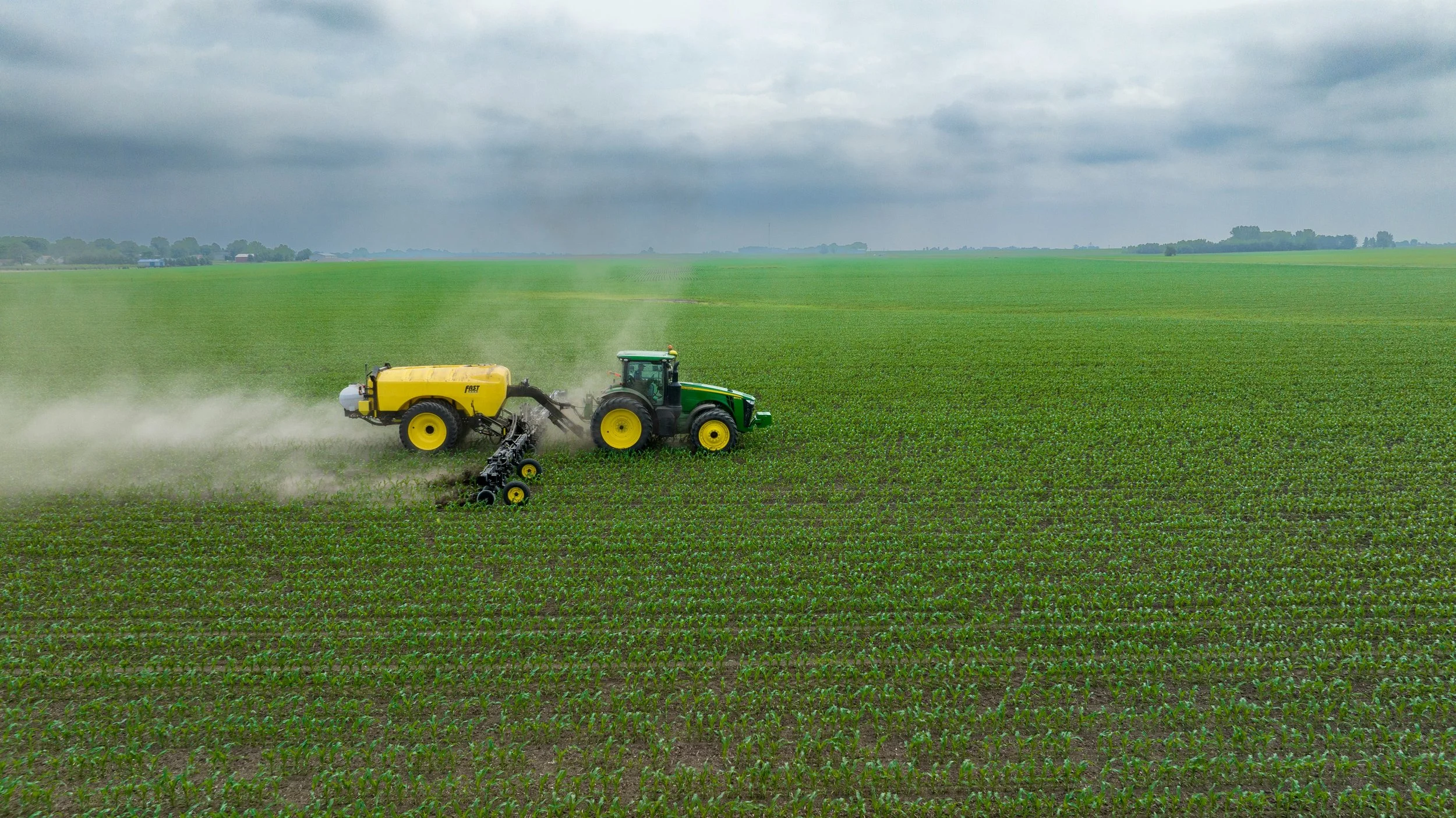Farming Rules for Water and the Anaerobic Digestion Revolution: Navigating New Regulations for Sustainable Biogas Operations
The UK’s July 2025 restructuring of the Farming Rules for Water (FRfW)is reshaping how farmers and AD operators manage nutrients, land, and digestate. What began as advisory guidance in 2018 has now matured into a strict compliance framework, with the Environment Agency taking an enforcement-led approach. For many, these changes may seem daunting. But for AD operators and progressive farmers, they mark a turning point where compliance and sustainability can work hand in hand to unlock real opportunity.
This article explores what the new rules mean, how digestate is positioned at the centre of nutrient planning, and how the AD industry can adapt and thrive in this new regulatory landscape.
Understanding the New Farming Rules for Water
The Farming Rules for Water were originally introduced to curb diffuse pollution from agriculture, mainly nitrogen and phosphorus runoff into rivers and streams. Under the revised 2025 guidance, land managers must demonstrate clear, evidence-based nutrient planning. Gone are the days of spreading organic manures when convenient; every application must now be justified by crop and soil need.
The most significant changes include:
Evidence-based nutrient planning: Farmers must use recognised tools like RB209, PLANET, or MANNER-NPK (AHDB) or seek advice from FACTS-qualified consultants.
Readily Available Nitrogen (RAN) accounting: The RAN content of organic manures and digestate must be considered when planning applications.
No averaging of nutrients: Applications must meet crop demand at the time of spreading, not averaged over crop rotations or seasons.
In practical terms, this means greater scrutiny of autumn and winter spreading practices. Operators must now align digestate applications with demonstrable crop uptake or risk being deemed non-compliant.
Digestate: From By-Product to Valuable Resource
These regulatory shifts place digestate firmly in the spotlight. Once regarded as a by-product, digestate is increasingly recognised as a valuable, regulated fertiliser. Farmers can no longer apply it simply to dispose of excess material—it must be managed strategically.
High-quality digestate, particularly that which meets PAS110 certification, is well positioned to thrive under this framework. Certification reassures regulators and farmers alike, proving digestate’s consistency and quality while reducing the risk of water pollution. Recent updates to PAS110 have tightened contamination limits, strengthened stability criteria, and introduced enhanced quality management systems—all designed to safeguard both the environment and market confidence.
Nutrient analysis highlights digestate’s potential:
Nitrogen: 2.3–4.2 kg per tonne
Phosphorus: 0.2–1.5 kg per tonne
Potassium: 1.3–5.2 kg per tonne
With up to 95% of nutrients retained from input materials, digestate is not only a replacement for manufactured fertilisers but a tool for building soil health within a circular economy model.
Opportunities for AD Operators and Farmers
For AD operators, the regulatory changes are less about limitation and more about evolution. Farmers need trusted partners who can help them navigate compliance, and AD operators are uniquely placed to step into this role.
Expanding Agronomy Services
Many AD operators are now moving beyond their role as waste processors to offer tailored agronomy services. This includes nutrient management planning, soil testing, compliance documentation, and precision digestate application using modern spreading equipment. These services not only support farmers with compliance but also generate new revenue streams for operators.
Policy and Financial Support
The Green Gas Support Scheme (GGSS) continues to underpin AD growth, with Ofgem extending tariff guarantees until 2028. Recent updates have clarified processes and made the scheme more accessible to investors. Combined with demand for sustainable fertiliser alternatives, this creates a favourable landscape for new projects.
Urban and Regional Growth
Mandatory food waste separation, introduced in 2025, is fuelling demand for new AD capacity in urban centres. Companies like Dark Green Group are planning networks of urban AD plants, which will reduce transport emissions, provide local renewable energy, and generate digestate for nearby agricultural use. Compliance with FRfW will remain essential in these new contexts, ensuring digestate applications meet the same high standards across both rural and urban settings.
Common Concerns Addressed
Is digestate use now more restricted?
Not necessarily. It is more regulated, which means applications must be justified by crop need and supported by evidence. With planning, farmers can still spread digestate effectively.
Do I need PAS110 certification?
While not always a legal requirement, PAS110-certified digestate carries far greater market confidence. It reduces regulatory risk and makes digestate a viable, saleable product rather than a waste.
Will compliance increase costs?
Yes, in the short term—farmers may need more advice, testing, and planning. However, the long-term benefits include reduced fertiliser bills, better soil health, and lower pollution risks. AD operators can offset compliance costs by developing service-based models.
Future Outlook
Looking ahead, the Farming Rules for Water will continue to tighten nutrient management practices, pushing agriculture towards more sustainable approaches. For AD operators, this presents several opportunities:
Positioning digestate as a mainstream fertiliser that meets regulatory and agronomic requirements.
Developing integrated services that combine renewable energy, nutrient recycling, and compliance support.
Adopting advanced technologies such as nutrient recovery systems, precision spreading, and carbon capture to increase efficiency and profitability.
Globally, the International Energy Agency projects that digestate could replace up to 15% of EU fertiliser demand by 2050, a powerful indicator of its growing importance.
Conclusion
The Farming Rules for Water represent both a challenge and an opportunity. For farmers, they require careful planning and evidence. For AD operators, they offer a chance to step into a more strategic role, providing high-quality digestate and expert support to the agricultural community.
At BIOCON Group, we believe this is a transformative moment where compliance can drive innovation. By embracing high standards, supporting farmers, and building partnerships, the AD industry can cement its role at the heart of sustainable agriculture and renewable energy.


